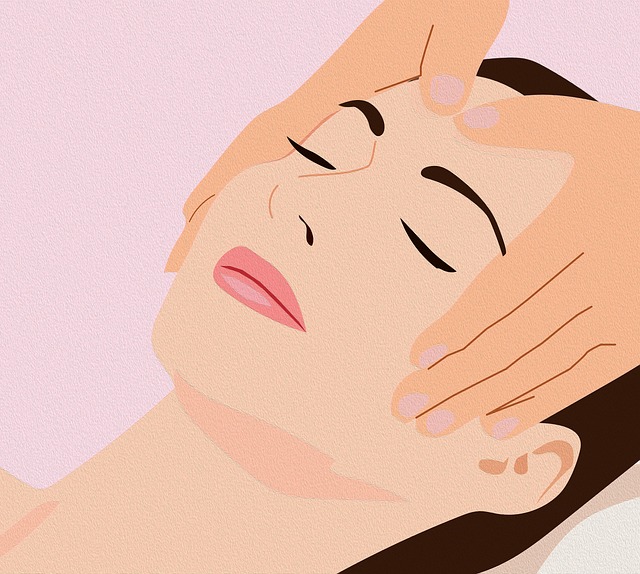Depressive disorders significantly impact daily life, but recognizing common symptoms like sadness, appetite/sleep changes, fatigue, concentration issues, worthlessness, and suicidal thoughts is crucial. Depression therapists provide specialized care using evidence-based methods like CBT, IPT, and MBCT to address unique needs. They create safe spaces for talk therapy, cultivating healthier coping strategies, communication skills, and self-understanding. These professionals empower individuals to manage depression effectively. Challenges in depression therapy include condition complexity, co-occurring disorders, and patient motivation. Personalized strategies and support networks enhance engagement and outcomes. Many have found remarkable transformations through depression therapists' guidance.
Depressive disorders, a prevalent mental health challenge, affect millions globally. Understanding these conditions, from symptoms to diverse types, is crucial for seeking effective treatment. This article explores psychotherapy as a powerful tool against depression, delving into its techniques, benefits, and real-life success stories. Discover how licensed depression therapists play a pivotal role in guiding individuals through this transformative journey towards healing and well-being. Learn about navigating the therapy process, overcoming challenges, and finding the right fit for your unique needs.
Understanding Depressive Disorders: Symptoms and Types

Depressive disorders are a group of mood disorders characterized by persistent feelings of sadness, loss, and low self-esteem. They can significantly impact an individual’s daily life, work, and relationships. Recognizing the symptoms is crucial for seeking help from depression therapists. Common indicators include persistent melancholy, changes in appetite and sleep patterns, fatigue, difficulty concentrating, feelings of worthlessness or guilt, and recurrent thoughts of death or suicide.
There are various types of depressive disorders, each with its unique features. Major Depressive Disorder (MDD) is the most common, characterized by at least two weeks of depressed mood. Persistent Depressive Disorder (PDD), previously known as Dysthymia, involves a depressed mood that lasts for at least two years. Seasonal Affective Disorder (SAD) is related to changes in seasons, typically occurring during fall and winter when there’s less natural sunlight. Understanding these manifestations helps individuals find the right depression therapists who can provide specialized care tailored to their specific needs.
The Role of Depression Therapists in Treatment

Depression therapists play a pivotal role in helping individuals navigate and overcome depressive disorders. These professionals are trained to provide evidence-based therapeutic interventions tailored to address the unique needs of each client. Through various talk therapy techniques, they facilitate a safe and supportive environment, enabling patients to explore and process their emotions, thoughts, and behaviors associated with depression.
Depression therapists employ diverse approaches such as cognitive-behavioral therapy (CBT), interpersonal therapy (IPT), or psychodynamic therapy. They assist clients in identifying negative thought patterns, challenging distorted beliefs, and developing healthier coping strategies. Additionally, they help improve communication skills, resolve relationship issues, and foster a deeper understanding of oneself, ultimately empowering individuals to manage their depression effectively.
Common Psychotherapy Techniques for Depression

Depression therapists often employ various psychotherapy techniques tailored to address the unique needs of individuals struggling with depressive disorders. One widely recognized approach is cognitive-behavioral therapy (CBT), which focuses on identifying and modifying negative thought patterns and behaviors contributing to depression. CBT helps patients challenge distorted thinking, replace it with more realistic and positive thoughts, and engage in activities that foster a sense of well-being.
Another effective method is interpersonal therapy (IPT), designed to improve communication and relationships, two key factors linked to depression. IPT assists individuals in understanding and resolving interpersonal problems, such as conflicts or loneliness, which can exacerbate depressive symptoms. Additionally, mindfulness-based cognitive therapy (MBCT) combines elements of CBT with mindfulness practices to prevent relapse, making it a valuable tool for managing chronic depression. These evidence-based techniques empower individuals to take charge of their mental health and cultivate lasting resilience.
Benefits of Talking to a Therapist for Depression

Talking to a therapist is a highly effective way to combat depressive disorders. Depression therapists provide a safe and non-judgmental space for individuals to explore their emotions, thoughts, and behaviors. Through regular sessions, they help patients develop coping strategies, gain insights into underlying issues, and build resilience. Therapists offer evidence-based techniques such as cognitive-behavioral therapy (CBT), which has been proven to alleviate symptoms of depression by challenging negative thought patterns and promoting healthier ways of thinking and acting.
In addition to direct therapeutic interventions, depression therapists serve as powerful sources of support. They offer empathy, encouragement, and guidance, fostering a sense of understanding and empowerment. Many individuals find that sharing their experiences with a trained professional helps them feel less alone and more capable of managing their mental health. This supportive relationship can be transformative, enabling people to take charge of their well-being and make lasting positive changes in their lives.
Finding the Right Therapist for Your Needs

When seeking psychotherapy for depressive disorders, finding the right therapist is a crucial step in your journey to recovery. It’s essential to remember that every individual’s experience with depression is unique, and so are their therapeutic needs. Therefore, it’s vital to find a therapist who specializes in depression and aligns with your specific requirements.
Look for therapists with expertise in evidence-based treatments like cognitive-behavioral therapy (CBT) or interpersonal therapy (IPT), which have proven effective for depression. Additionally, consider the therapist’s approach, whether they offer a warm and supportive environment, active listening, or other techniques that resonate with you. Building a strong therapeutic alliance is key to successful treatment, so ensure you feel comfortable and understood from the beginning.
Challenges in Depression Therapy and How to Overcome Them

Depression therapy faces several challenges, from the complexity of the condition to patient adherence. Depression therapists often grapple with co-occurring disorders, such as anxiety or substance abuse, which can complicate treatment plans and require integrated approaches. Additionally, depression’s symptoms, like fatigue and loss of interest, may hinder a patient’s motivation to engage in therapy consistently.
Overcoming these challenges involves personalized treatment strategies. Therapists can adapt their methods to cater to individual needs, incorporating techniques like cognitive-behavioral therapy (CBT) for specific symptoms or mindfulness practices to enhance motivation. Regular communication, clear goals setting, and flexible scheduling can also improve patient engagement. Furthermore, integrating family or group therapy sessions can provide support networks, fostering a sense of belonging and accountability.
Success Stories: Real-Life Transformations Through Therapy

Many individuals struggling with depressive disorders have found hope and healing through psychotherapy, leading to remarkable real-life transformations. These success stories showcase the power of professional support in addressing complex mental health challenges. With dedicated depression therapists guiding them, clients often embark on a journey of self-discovery, learning valuable coping strategies and gaining insights into their feelings and behaviors.
Through personalized therapy sessions, individuals can develop effective tools to manage symptoms, enhance well-being, and improve overall quality of life. Depression therapists offer a safe and non-judgmental space, fostering open communication and encouraging clients to explore underlying causes of their distress. As a result, many have reported significant improvements in mood, increased energy levels, better sleep, and improved relationships, ultimately embracing a brighter and more fulfilling future.
